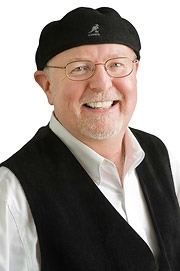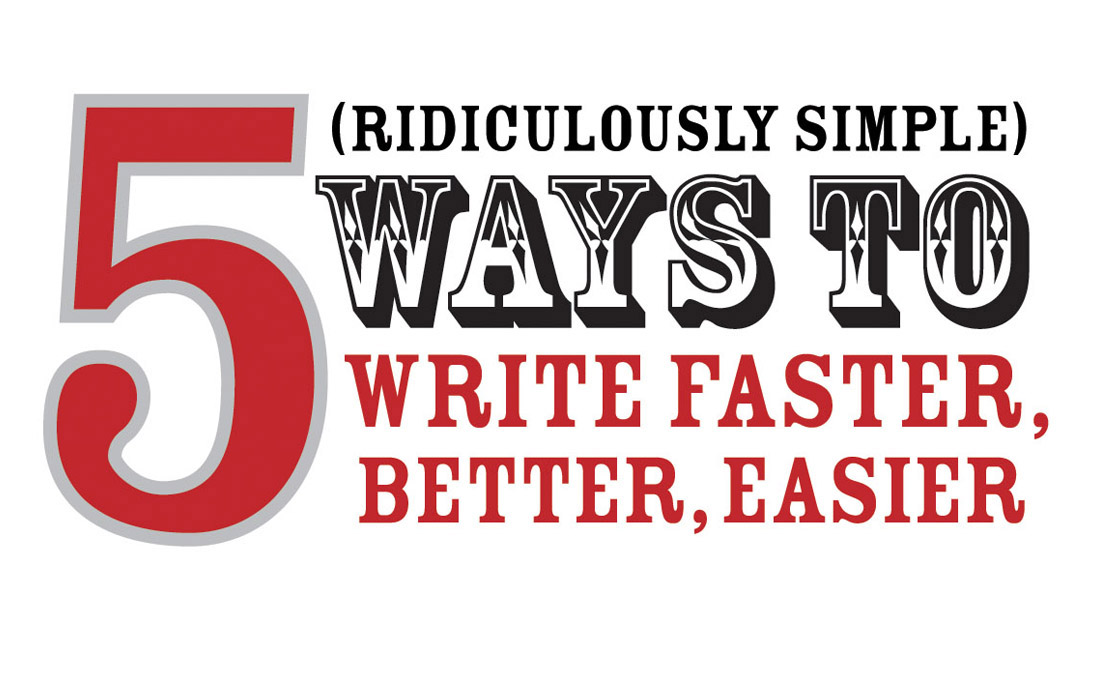My 22 Best On-Camera Interviewing Tips Ever
 Thursday, December 6, 2007 at 09:27PM
Thursday, December 6, 2007 at 09:27PM 
Have you ever spent a lot of time preparing for an interview only to walk away less than thrilled with what you captured?
Don't let it happen again.
Since I've been blessed to interview hundreds of heroes over 23 years, I shared my one big secret to capturing a great interview.
So now, here are my best 22 interviewing tips to help you make every interview your best story possible.
1. Create a comfortable place for the interview; have water ready for your hero and be reassuring.
2. Ask open-ended questions to get the person talking in depth. Avoid asking questions that create a “yes” or “no” answer.
3. Be a “story steward.” If you will be editing your hero’s story, tell them that. They will feel more comfortable knowing that and open themselves up to you. If you are not editing their words, tell them who is so they understand the process.
4. If your hero freezes up, remind them you are their “story steward.” It is you who will be taking care of their words and story.
5. Do not interrupt! Nod your head in acknowledgement while they answer.
6. Ditch your list of questions when your hero says something surprising. Ask new questions based on what was said, not necessarily what is next on your list.
7. Keep you questions short: ten words or less!
8. Ask: “What’s at stake?” This is an excellent question to end your program. It could be interpreted any number of ways, so let your hero choose how to answer.
9. Ask: “What does the future hold for you/your company?”
10. Ask: “How did you get into this business?
11. Ask: “What do you think your story tells our audience?”
12. Ask: “What’s the most amazing part of your life?”
13. Listen 100%. Stop playing your tapes. Listen to theirs.
14. Ask the first few questions again at the end of the interview. Everybody’s warmed up by then and you’ll likely get better, as well as, different answers.
15. Try not to give the questions ahead of time to your hero. Most likely, they will wind up memorizing answers and come off stiff during the actual interview.
16. Ask “throw away” questions when first starting. This gets everybody warmed up. Try, “What are your hobbies?” “What books are you reading?” and the like.
17. Imagine hearing the type of answers you want. This helps you focus precisely on the question you need to ask to create the answers you want.
18. Be completely open to “infinite possibilities.” Anything can, and will, happen!
19. Repeat questions, if necessary, to capture the answer you really need. Do not be afraid to say, “I liked that answer a lot. Can you give me a shorter version of it?”
20. At the end of the interview, ask “Is there anything we missed?” Invite your hero to say whatever else might be on their mind.
21. Allow the crew to ask questions, if it’s appropriate. You can count on being surprised!
22. Share gratitude to your hero for the unique opportunity of capturing their remarkable story to help change the world.
Got a tip? Share it here.
---Tom
P.S. This post was inspired by Brian Clark over at Copyblogger. Brian challenged his readers to take one of his Cosmo headlines and apply it to our blog. Check out the comment section for other amazing posts.




Reader Comments (33)
The power of a simple smile.
Smiles connect people to your heart, so take the time to share a smile, and you'll put your hero at ease.
Or you'll scare them. Either way, it's a win :)
You're absolutely right! Feeling up and smiling yourself is a visual clue to your hero that you are comfortable being with them, in turn, making them a bit at ease as well.
Tom
Always a pleasure reading your thoughts and advice! Keep it up!
Many thanks for your note...feel free to grab the list and use what you can :-)
Be well and thanks for being a fan!
Tom
I've cut and pasted this list to a cheat sheet so I can review it before every podcast interview I do from now on. Great suggestions. Thanks for sharing.
Clayton
Thanks for stopping by and glad you found the list useful!
Tom
I love your tips! I think you might be a good future guest for the ARRiiVE: Innovations In Business radio show I host at http://www.talkshoe.com/tc/37798.
Are you open to reposting this particular article at my ARRiiVE blog? I think it is a useful topic. I would credit back to your site, of course.
Thanks for providing such terrific information in your blog for people producing video for corporations!
Regards,
Scott Andrews, CEO
ARRiiVE Business Solutions
http://www.ARRiiVE.com
http://arriive.blogspot.com
So true...and a great point. Thanks for sharing :-)
Tom
Tom
Here's one more: Silence.
Silence in a conversation makes folks nervous.
If the interviewer learns to be silent rather than immediately asking another question -- it's harder than it sounds -- interviewees often will be compelled to fill the void without thinking about what they're saying.
The result can be revealing in ways answers to questions won't.
Neil Reisner/Florida International University
Indeed...I've seen it happen many times, myself. Just wait a few beats before you ask your next question. Chances are, more ideas get expressed.
Thanks for stopping by and sharing.
Tom
Stay away from extremes questions. People in interviews ask me all the time what my worst show was like or whatever. These are the types of questions that slow me down because I have to dial in to that specific memory. And, I have to think through all the bad shows, and narrow them down to the worst. Also, I have to determine what "worst" means.
A more welcome question is always "Have you ever had a show where the audience got out of hand?" or "Have you performed in any scary situations?"
So stay away from words like "worst", "best", "favorite", etc.
You will freeze up your interviewee... which leads me to another tip. It's kinda a black belt interview skill. If you ask a question that doesn't spark something immediately, give some background information. Just talking nonsense after asking a question gives the ee some time to think.
eg: "What are your plans for retirement?" (they're thinking) "Some people move to Florida, some people travel, others just get sick. What do you think you'd like to do when you retire?"
Tom
There's something I always do, which works most of the times - a rather silly charakter question. Ask the interviewee something fantastic. For example a photographer: Which scene in human history would like to shoot?
I think that these questions set a playfull mood, that help the person to relax, if he or she is a bit stiff. Also they can use their own imagination and don't haver to stick to the scipt, that (most likely) some PR-droid has written for them. And the answers are pretty funny most of the time.
@danchannel: True! A friendly chat which is recorded is the best interview.
Take care,
Tom
"Did you ever think/imagine that XXXX would be this popular/successful etc?"
And bounce light from a reflector can help or a diffuser can add the composition and not leave you with a flat looking video.
Thanks so much for the great advice! I am scheduled to interview a famous director for an upcoming webcast/podcast within the next 2 weeks and now feel less nervous having read your timely advice. I will be sure to incorporate your advice into the interview. This was very helpful! Thanks a bunch!
Debra Dixon
Light of Gold PR and Marketing LLC
http://www.lightofgoldpr.com
lightofgoldpr@aim.com
Glad these tips were helpful :-) Best of luck with your interview!!!
Let us know how it goes.
Take care,
Tom
Right...chatting ahead of time is great, if you have the time.
Take care,
Tom
This automatically makes them feel smart and gives the audience insight into their thought process. As mentioned, you've got to really listen before you can effectively fill in that blank.
oh, and another point. and forgive me but i have been making broadcast documentaries for almost twenty years....the question can be as long as you want. often a long question enables engagement and conversation, rather than point and shoot someone against a wall.
great blog by the way! :)
One thing I've learned is that, especially in phone interviews when you might catch someone off guard, it's good to mention how long the interview might last right away. I've found that even if someone's in a hurry to get off the phone, simply saying "do you mind chatting with me for just a few minutes?" often leads to a much longer interview than the interviewee initially expected, resulting in more content for you to work with.
Tristan
host and producer
http://www.angieslistpodcasts.com
Hope you are well! Just to let you know, my interviews and Webcast turned out well! Still have a lot to learn, but it's great and fun.
Very excited to be able to host my own Webcast/Podcast and offer the service to others. It's posted here at http://www.lightofgoldpr.com/webcast.html, just click the link if you'd like to check it out! There's a new interview/webcast every week.
Thanks again for the great advice! Take care!
Debra Dixon
Light of Gold PR and Marketing LLC
http://www.lightofgoldpr.com
e-mail: lightofgoldpr@gmail.com
Great point. I calling it "playing the devil's advocate."
I'd ask something like: "So, I really don't see the big deal here with this new product. I mean, there's a lot of widgets like this in the marketplace."
Bingo....that gets anyone talking!
Thanks for stopping by!
Tom
Tom